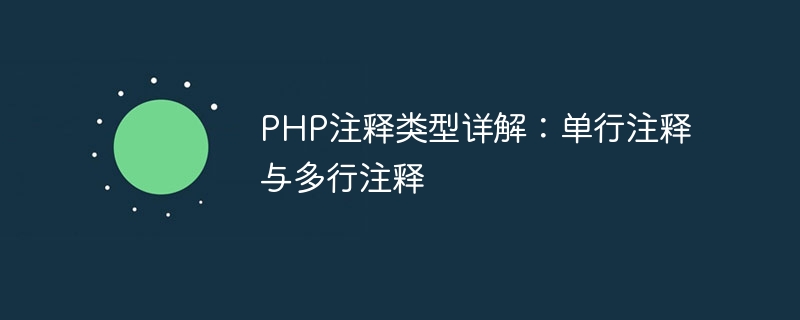

PHP is a popular server-side scripting language that is widely used in the field of web development. In the code writing process, comments are a very important element, which can help developers better understand the code and improve the readability and maintainability of the code. This article will introduce the comment types in PHP in detail, including single-line comments and multi-line comments, and provide specific code examples.
In PHP, single-line comments can be achieved by using double slashes//. Single-line comments start from // and continue to the end of the line. Single-line comments are usually used to provide a brief explanation of the code or to temporarily comment out a line of code to debug the program.
// This is a single line comment to explain the function of the following line of code $variable = 10; // Assign values to variables
PHP supports using /* */ to wrap multi-line comments. Multi-line comments can span multiple lines and can be used to comment out longer blocks of code or write detailed documentation.
/*
This is an example of a multi-line comment to explain in detail what the following code does:
This code is the definition of a function used to calculate the sum of two numbers
*/
function add($num1, $num2) {
return $num1 $num2;
}When writing PHP code, good comment habits can help others read and understand your code more easily, and also help yourself with future maintenance work. The following are some best practices for comments:
Summary, comments are an important part of the programming process and can improve the readability and maintainability of the code. In PHP, single-line comments and multi-line comments are commonly used comment types. Developers should use these two comment types flexibly and pay attention to the quality and specifications of comments in order to better manage and maintain the code.
The above is the detailed content of Detailed explanation of PHP comment types: single-line comments and multi-line comments. For more information, please follow other related articles on the PHP Chinese website!




